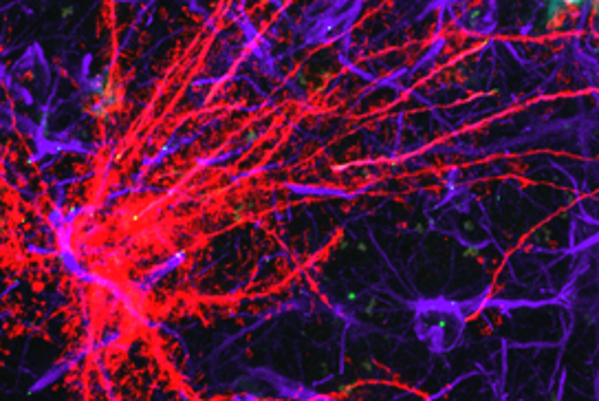Laboratory of Humanized Models of Disease

Responsable: Amaia Arranz Mendiguren
Centro: Achucarro Basque Center for Neuroscience
Correo electrónico: amaia.arranz@achucarro.org
Páxina web: https://www.achucarro.org/es/laboratory/humanized-models-of-disease/
Astrocytes constitute a large part of the brain cell mass and play an essential role in the central nervous system (CNS) by maintaining brain homeostasis. They also extensively interact with neurons and other brain cells providing trophic and metabolic support, stimulating synaptogenesis and neurotransmission and controlling blood flow. In disease and following injury, astrocytes acquire different reactive states characterized by specific molecular profiles, as well as biochemical, morphological and metabolic signatures which ultimately result in altered functions (Preman et al., Cells 2021). Astrocytes become affected at early stages of Alzheimer’s disease (AD) (Arranz et al., Lancet Neurology 2019), however, we still know very little about human astrocyte reactivity and how reactive astrocytes crosstalk with other brain cells in AD. Do human astrocytes acquire specific reactive states during the course of AD? And, how such states impact and modulate the AD pathology? We are using the stem cell technology to generate human astrocytes and other brain cells, and humanized in vitro modeling together with chimeric mice (Preman et al., Mol Neurodegener 2021; Espuny et al., Neuron 2017) to analyze human astrocyte reactive states, their interaction with other CNS cells and their contribution to the onset and progression of AD.
Investigadores/as
Clasificacións
- Centros: Achucarro Basque Center for Neuroscience



